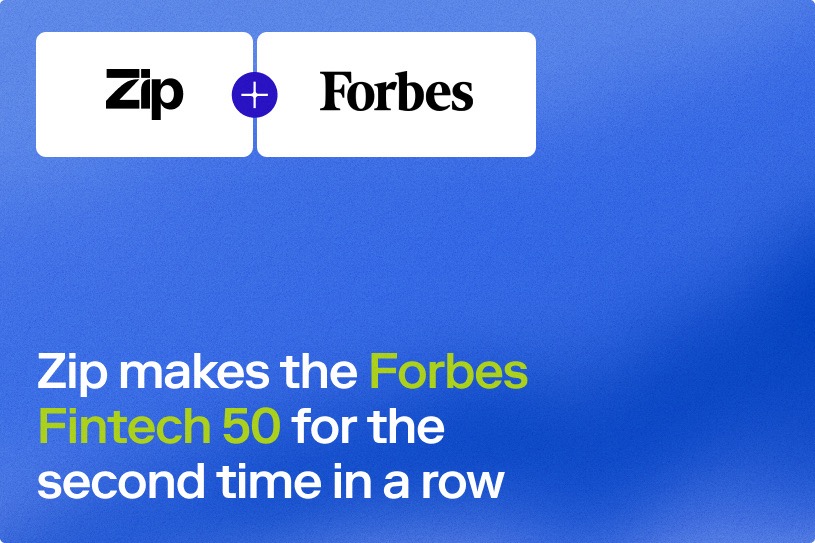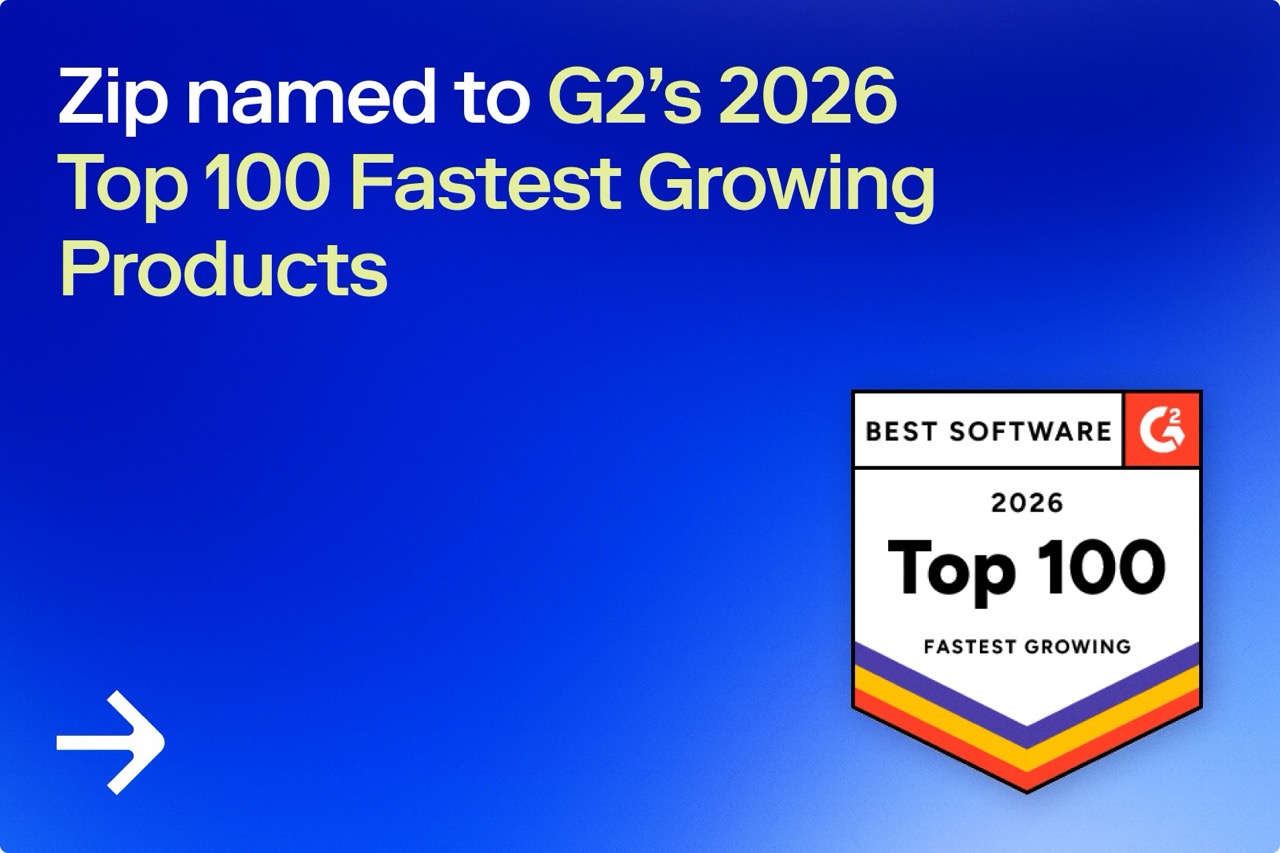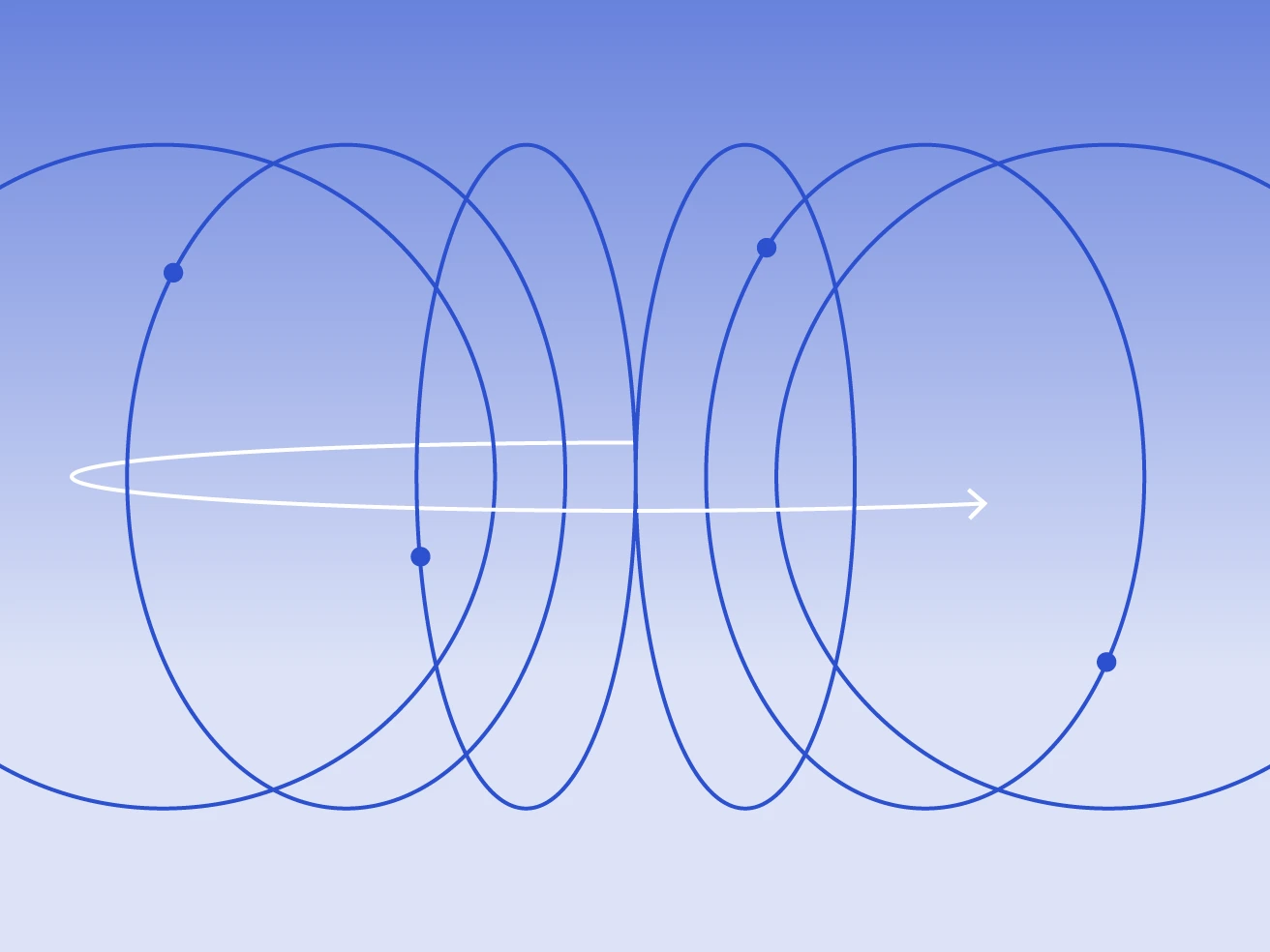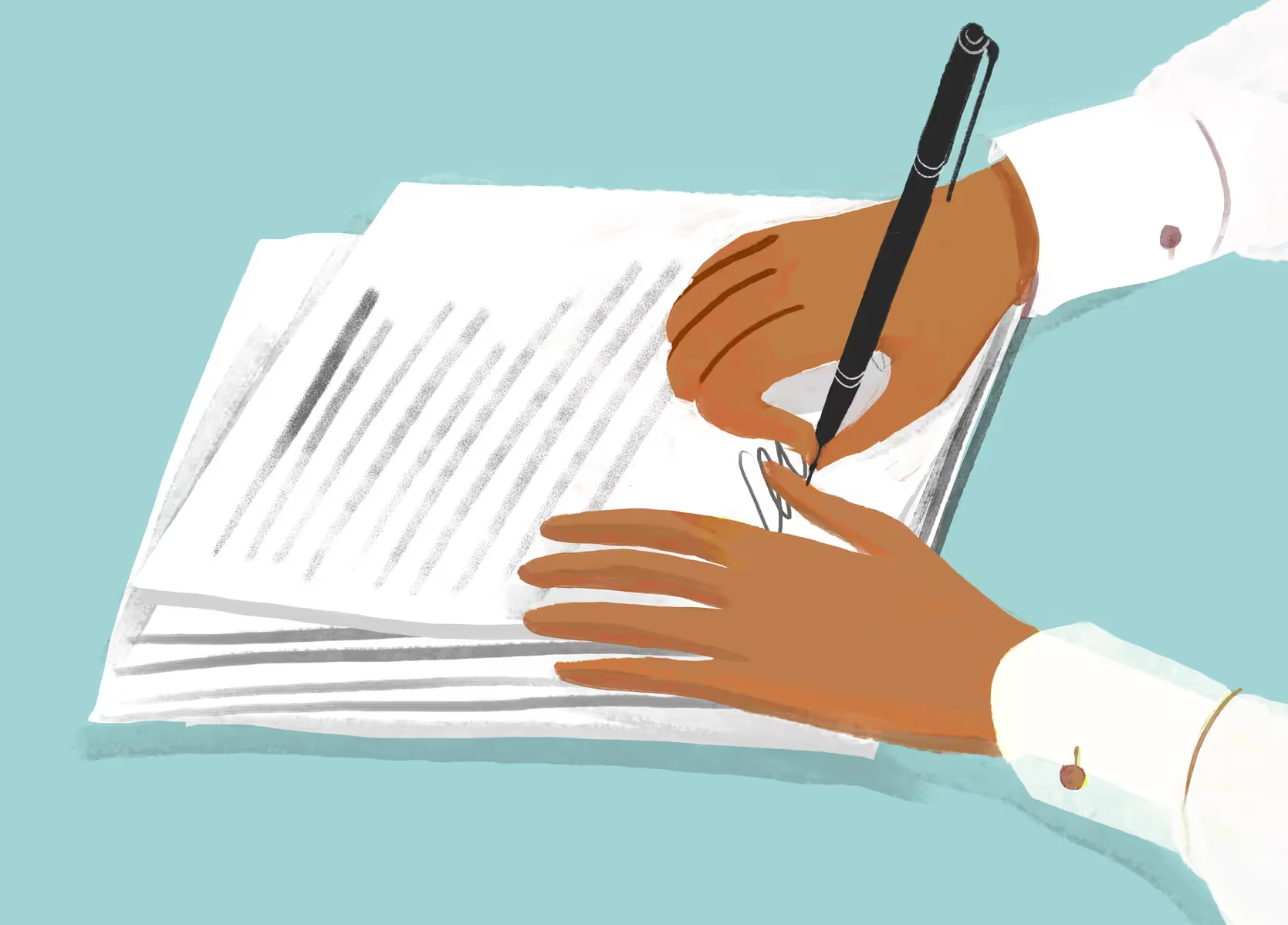
Procurement Manager job description: Make the right hire
Learn the key skills of a procurement manager with this guide to hiring right.

If you’re looking to optimize your company’s purchasing operations for both cost-savings and strategic growth potential, there’s almost no better move you can make than hiring a dedicated procurement manager.
But first, you’ll want to understand exactly what success looks like in this role, and how to ensure you’re hiring the best person for the job.
Typically, a procurement manager is responsible for overseeing the procurement of goods and services, managing supplier relationships, and ensuring cost-effective purchases—all while collaborating closely with various departments and stakeholders to align procurement strategies with broader business goals.
In this post, we’ll explore what makes a procurement manager essential to the success and growth of your procurement department and your company, and how Zip can streamline procurement management workflows for everyone involved in the process.
Procurement Manager job description
A procurement manager is a strategic professional responsible for overseeing an organization's procurement processes. Their primary focus is on ensuring that goods, services, and works are acquired at the best possible price, quality, and terms.
A Procurement Manager's responsibilities are varied, but mostly involve working closely with internal and external stakeholders like suppliers, customers, and cross-functional teams to align procurement strategies with business objectives.
The responsibilities of procurement professionals extend beyond mere transactional functions, and involve various tasks.
- Tracking and reporting key functional metrics to optimize spend and enhance the procurement strategy.
- Collaborating with key stakeholders across the organization to ensure procurement activities support overall corporate goals.
- Implementing data-driven insights to make informed decisions and tailor procurement strategies to the company's needs.
- Delegating tasks within the procurement team efficiently to balance workloads and enhance productivity.
- Providing ongoing support to team members to foster professional development and operational excellence across functions, and problem-solving when needed.
- Keeping up with industry changes and evolving procurement technologies to maintain a competitive edge.
Procurement Manager vs. Purchasing Manager
While both roles involve the acquisition and category management of goods and services, the procurement manager’s scope is broader. They focus on the strategic side of acquisitions, such as managing vendor relationships, developing procurement policies, and conducting risk assessments.
Purchasing managers typically handle the day-to-day buying activities, often focusing more on transactional processes like purchase orders, than overarching strategies.
Purchasing Manager vs. Supply Chain Manager
The procurement manager and the supply chain manager roles intersect but are distinct. Procurement managers are primarily concerned with the buying process, aiming to secure the best goods and services at the most favorable prices.
Conversely, supply chain managers oversee the entirety of the supply chain from procurement to distribution, focusing on logistics and the efficiency of the supply chain operations.
Education requirements for a Procurement Manager
To excel in a procurement manager role, candidates for this job title might typically need:
- A Bachelor’s degree in business administration, supply chain management, or a related field. This foundational education provides the necessary business acumen and analytical skills. A master’s degree is useful, but not always required.
- At least 1-2 years working experience in a procurement-related role, such as a buyer or procurement officer, offering practical experience and insight into procurement operations.
Of course, not every procurement manager needs these specific credentials, but it’s encouraged that your first hire has experience in the field with measurable results leading a procurement function.\
Essential skills for a Procurement Manager
A proficient procurement manager is well-rounded, possessing a diverse set of skills that facilitate effective management and strategic decision-making.
Here are some of the sorts of things you might want to list on job boards, or to retain for your job description template for future procurement roles.
Analytical skills
Perhaps the most important skill a Procurement Manager can have in this era of digital transformation is the ability to analyze market data, pricing data, and supplier performance metrics. Working within an intelligent procurement orchestration platform like Zip can help your Procurement Manager make better decisions that optimize strategies and operations.
Negotiation
Strong negotiation skills enable procurement managers to secure the best price and best possible terms from suppliers, leveraging advanced strategic sourcing strategies for cost savings and maintaining quality in supply chains. They’ll need strong communication skills, interpersonal management skills, and experience in contract negotiation.
Supplier relationship management
Effective management of supplier relationships ensures a reliable and high-quality supply base. The procurement manager will be responsible for building trust, fostering mutual benefits, contract management, and handling disputes professionally to maintain healthy, long-term partnerships.
Strategic thinking
A Procurement Manager should be able to take two step backs and consider effective strategies for aligning procurement activities with the broader business goals. Consider the big picture, with strategies that take into account market dynamics and anticipated changes, working accordingly to streamline workflows, mitigate risks, and capitalize on opportunities.
Challenges for Procurement Managers
Despite the strategic importance of the role, a Procurement Manager’s job can involve some difficult challenges. From managing approvals to negotiating with difficult suppliers, there are many issues they may face in their day-to-day work.
Here are some of the types of things Procurement Managers need to look out for.
Evolving industry trends
It can be daunting to keep pace with the rapid technological changes and shifting market conditions. It’s good to be up-to-date by paying attention to industry broadsheets, influences, podcasts, and blogs.
Cost management
Balancing cost savings while maintaining quality and service levels requires a deep understanding of both the market and the broader needs of the company.
Supply chain resilience
It’s up to the Procurement Manager to build and maintain a resilient supply chain, especially in a globalized economy where external factors and market forces can quickly disrupt supply lines.
Stakeholder engagement
Effectively communicating and collaborating with various stakeholders to ensure alignment and support for procurement initiatives is often challenging, so strong leadership skills are essential.
These challenges are not unique to specific industries—all Procurement Managers will find some degree of necessity in confronting them.
Fortunately, no matter the market, advanced procurement orchestration platforms like Zip offer robust support for every aspect of the procurement journey, ensuring your Procurement Manager can effectively manage issues and drive impact no matter the conditions presented.
Leveraging Zip for procurement success
In addressing these challenges, Zip’s procurement orchestration software stands out as an indispensable tool for modern procurement managers. It offers:
- Advanced analytics: For better decision-making with real-time data insights into supplier performance and procurement metrics.
- Streamlined procurement workflows: Automation features that simplify the procurement process from request to payment, significantly reducing the administrative burden and allowing managers to focus on strategic tasks.
- Enhanced vendor management: Tools to manage vendor relationships more effectively, ensuring compliance and fostering strategic partnerships.
- Risk management features: Capabilities that help anticipate and mitigate risks associated with supplier reliability and contract compliance.
By integrating Zip’s procurement management software, your next Procurement Manager can overcome typical challenges, enhance their strategic value, and drive significant improvements in procurement efficiency and effectiveness. This strategic leverage not only boosts the procurement function but also supports the broader business objectives, ensuring that the organization remains competitive and resilient in a dynamic market environment.
Interested in how Zip can transform your procurement operations?
Join our Establishing Procurement webinar to see our platform in action, or contact us directly for a demo tailored to your business needs. Equip your procurement team with Zip and turn procurement challenges into opportunities.

Maximize the ROI of your business spend

Enter your business email to keep reading


























.webp)




















.avif)













.avif)









.webp)





.avif)












.avif)
